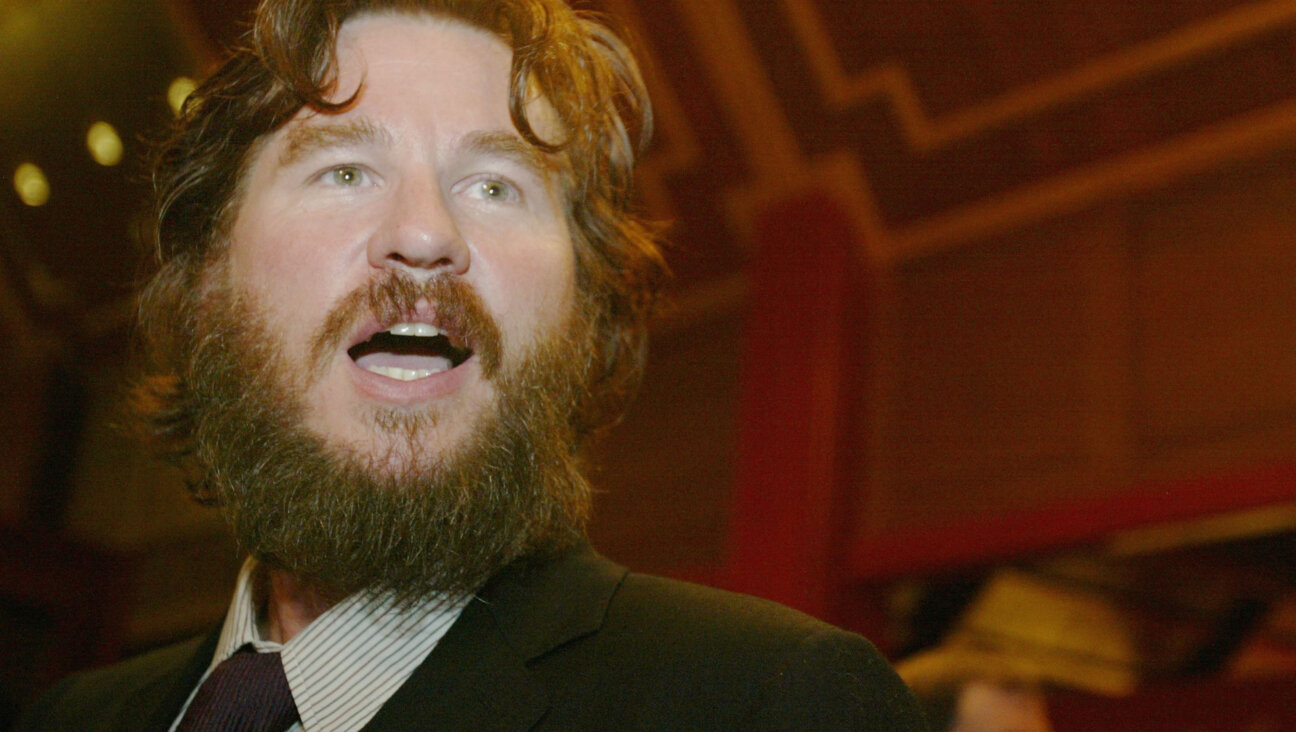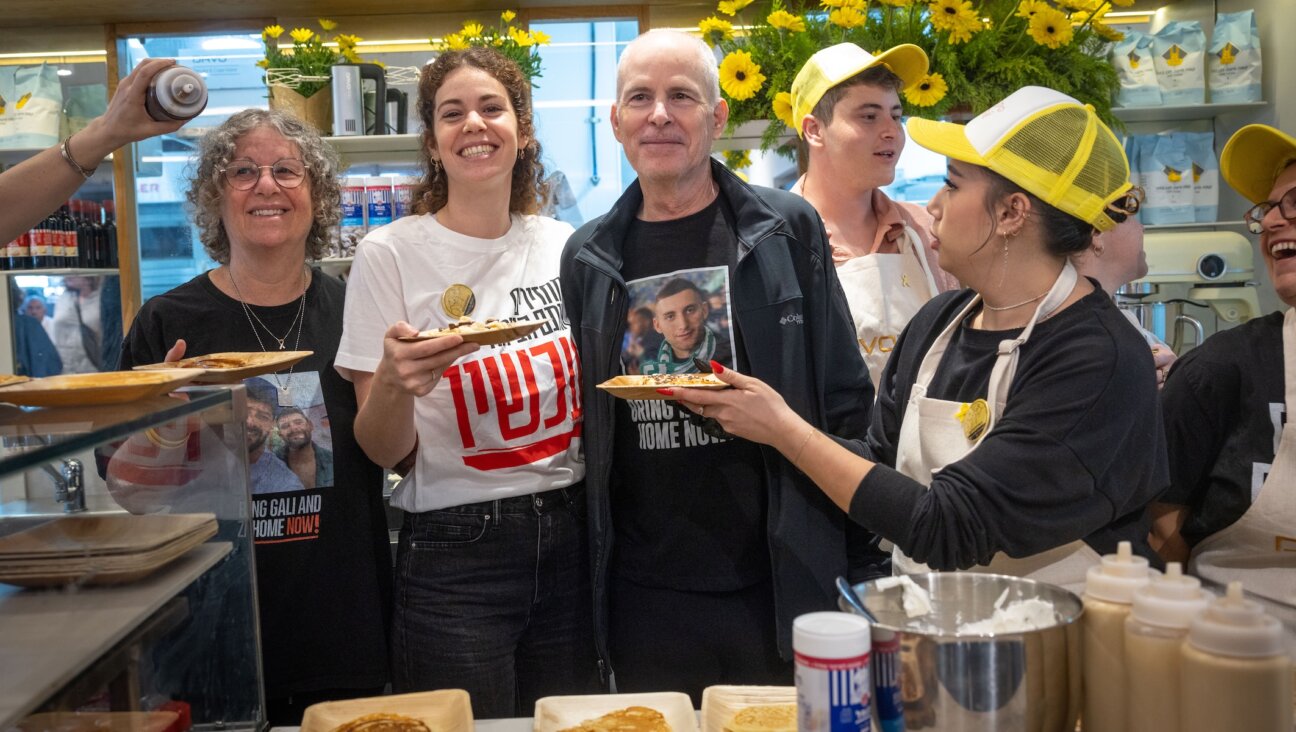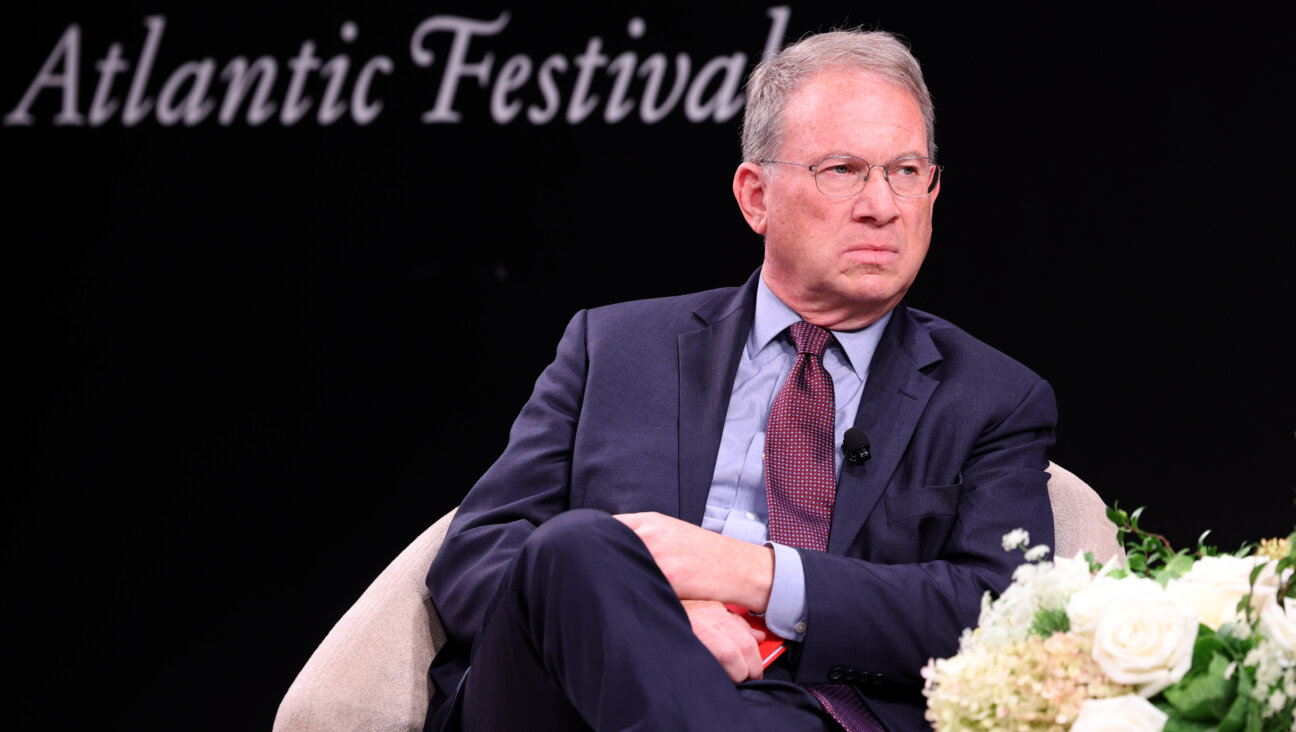THE SURVIVORS’ EXODUS
A new exhibit, “Exodus,” tells the story of the ship that attempted to bring more than 4,500 Holocaust survivors and displaced persons to British-controlled Palestine in 1947, only to be turned away. The British had a restrictive immigration policy in Palestine while they awaited a solution to the Arab and Jewish claims to the land from the United Nation Special Committee on Palestine.
Originally named the President Warfield and built for roughly 500 people, the steamboat was expanded to carry the Jewish refugees. The ship sailed from the port of Sete, France, on July 11, 1947, and on the night of July 17, the British surrounded the ship with destroyers, minesweepers and a cruiser and boarded it. The refugees fought with whatever they had available — tin cans, bottles, wooden boards and metal bars, among other objects. Three Jews were killed and many more were wounded. The British prevailed, and the passengers were forced onto deportation ships bound for France. In France, the passengers refused to disembark for 24 days and went on a hunger strike. On August 22, the British returned the ship to the British-occupied zone of Germany, where the refugees remained until the founding of the State of Israel.
The refugees’ treatment aroused the world’s conscience, helping to create support for Israel’s establishment. The Exodus 1947 is now known as the “ship that launched a nation.”
The exhibit includes a 25- by 12-foot reproduction of the ship along with documents, photos and film footage tracing the ship’s development from a little-known Chesapeake Bay steamboat to an international symbol for the creation of the Jewish state.
Ruth Gruber, who covered the voyage of the Exodus for the New York Post, and Ike Aronowitz, the ship’s captain, speak at the opening. Otto Preminger’s “Exodus” (1960) is screened September 7.
Virginia Holocaust Museum, 2000 E. Cary St., Richmond; opening Sept. 3, 6 p.m.-8 p.m., speakers 7 p.m.; dinner Sept. 4, 6:30 p.m.; movie Sept. 7, 1 p.m.; exhibit and movie free. (804-257-5400 or www.va-holocaust.com)
The Forward is free to read, but it isn’t free to produce

I hope you appreciated this article. Before you go, I’d like to ask you to please support the Forward.
At a time when other newsrooms are closing or cutting back, the Forward has removed its paywall and invested additional resources to report on the ground from Israel and around the U.S. on the impact of the war, rising antisemitism and polarized discourse.
Readers like you make it all possible. We’ve started our Passover Fundraising Drive, and we need 1,800 readers like you to step up to support the Forward by April 21. Members of the Forward board are even matching the first 1,000 gifts, up to $70,000.
This is a great time to support independent Jewish journalism, because every dollar goes twice as far.
— Rachel Fishman Feddersen, Publisher and CEO
2X match on all Passover gifts!
Most Popular
- 1

News A Jewish Republican and Muslim Democrat are suddenly in a tight race for a special seat in Congress
- 2

Film & TV What Gal Gadot has said about the Israeli-Palestinian conflict
- 3

Fast Forward The NCAA men’s Final Four has 3 Jewish coaches
- 4

Fast Forward Cory Booker proclaims, ‘Hineni’ — I am here — 19 hours into anti-Trump Senate speech
In Case You Missed It
-

Fast Forward Israel announces new offensive to seize ‘broad territories’ of Gaza Strip
-

Film & TV Val Kilmer was the voice of my generation’s Moses (and God)
-

Fast Forward Cory Booker spoke at a synagogue on Yom Kippur. Its rabbi says Jews should learn from his 25-hour Senate speech.
-

Fast Forward Cory Booker’s rabbi has notes on Booker’s 25-hour speech
-
Shop the Forward Store
100% of profits support our journalism
Republish This Story
Please read before republishing
We’re happy to make this story available to republish for free, unless it originated with JTA, Haaretz or another publication (as indicated on the article) and as long as you follow our guidelines.
You must comply with the following:
- Credit the Forward
- Retain our pixel
- Preserve our canonical link in Google search
- Add a noindex tag in Google search
See our full guidelines for more information, and this guide for detail about canonical URLs.
To republish, copy the HTML by clicking on the yellow button to the right; it includes our tracking pixel, all paragraph styles and hyperlinks, the author byline and credit to the Forward. It does not include images; to avoid copyright violations, you must add them manually, following our guidelines. Please email us at [email protected], subject line “republish,” with any questions or to let us know what stories you’re picking up.














